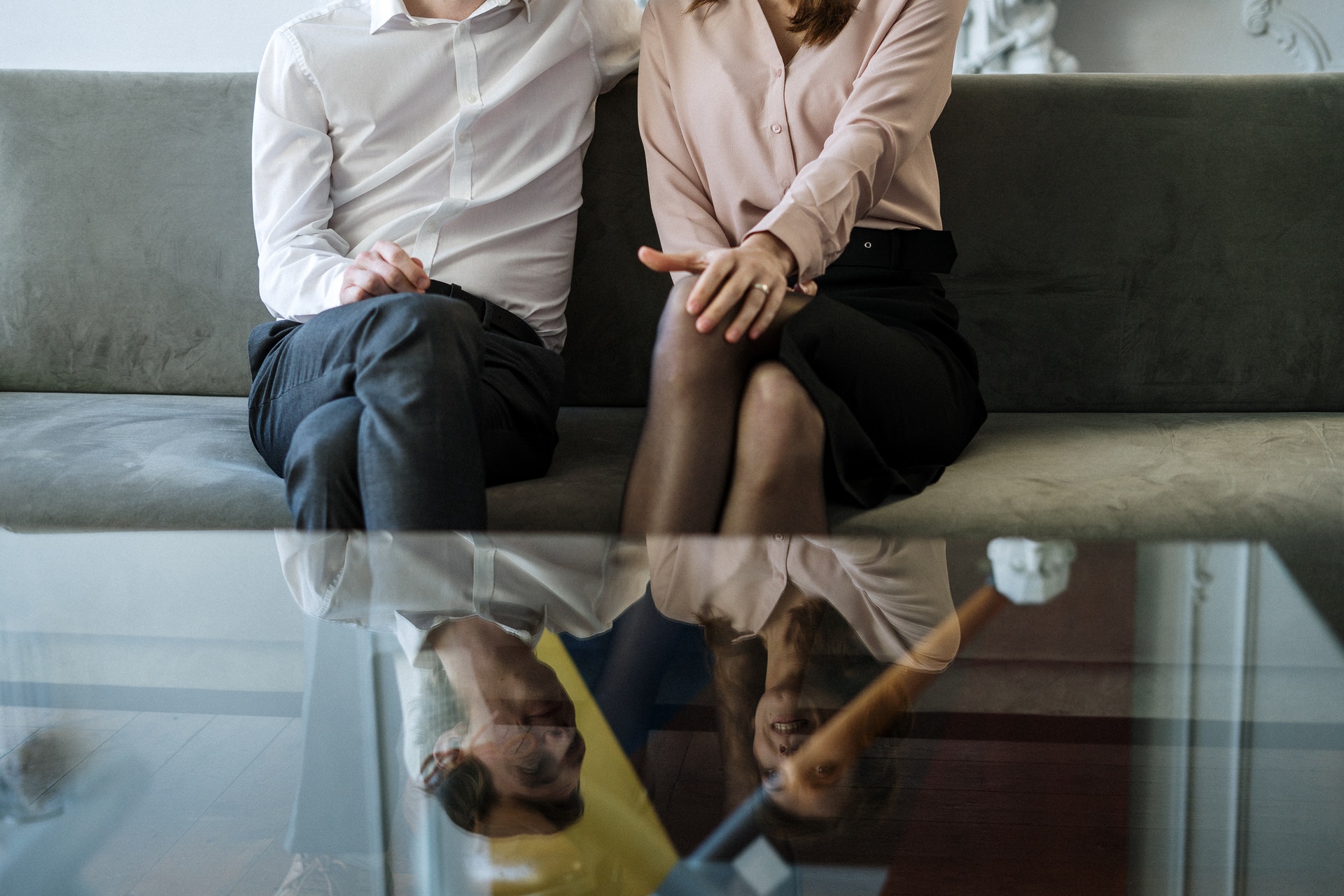The original version of this article was originally published on Rewire by Jake Schultz.
In some ways, Beverly Friedmann and her partner were like most couples who go to couples counselling.
They were struggling with communication and fighting over little things that didn’t matter. They didn’t agree on how to handle finances and looking for an apartment was a big challenge.
“We had some immature things like text fighting or, not necessarily jealousy, but differences with our friends and who to invite to this or whether to go to that,” Friedmann said.
As people in their mid-20s, it’s not surprising they had what Friedmann calls immature disagreements. Though they were engaged, they weren’t a long-married couple with kids and a lengthy relationship history.
They both recognized they could use some help.
So, after a friend recommended counselling, Friedmann brought it up to her then-partner and they decided to give it a go.
They didn’t know it at the time, but they were part of a growing trend among couples under the age of 40 who are turning to relationship therapy.
Breaking the stigma
More younger couples are seeing therapists together due to a destigmatized view of therapy, said Carly Claney, a licensed clinical psychologist in Washington.
A little more than half of millennials ages 23 to 38 have attended marriage counselling, according to a survey of 1,000 couples conducted by MidAmerica Nazarene University.
The same study showed 48 percent of baby boomers and 46 percent of Gen Xers have attended marriage counselling.
“I think with younger people there is more of an interest in mental health and relationship health,” Claney said. “There’s less of a stigma around going to counselling and there’s less of a stigma around mental illness.
A history of therapy helps
Sitting on the therapist’s couch isn’t as rare as it used to be. And that’s helping to make relationship counselling a more obvious choice for couples, too.
“Whether it’s on Reddit or Instagram or some other social media, you see people talking about their mental health in a big way,” said George Ball, a licensed psychologist with Heritage Counseling in Texas. “Instead of suffering in silence about a trauma that happened to them, it’s much more in the open now and reduces the stigma. They look to older generations and see what they did wrong. They aren’t going to be silent.”
Many couples who seek counselling together have experience with therapy outside of the relationship, Ball said. That can help when they sit on the couch together.
“I’m often not the first therapist they’ve seen,” Ball said. “If they’ve done individual counselling before, they know the ground rules. They know about confidentiality and the need for motivation. They know how to be introspective, maybe more so than someone who hasn’t been in therapy. They have a better idea of their part to play.”
Karen Hogg was 22 and engaged to be married when she first participated in couples counselling with a local pastor. Since marrying in 2017, she and her husband have done a couples retreat. They also continue to meet with a couples bible study group that often doubles as therapy.
Her previous experience with counselling made the idea of going to counselling as a couple feel pretty straightforward.
“When we had communication issues, it seemed obvious to me,” Hogg said. “You don’t know-how (your marriage) is going because you’ve never been married before, so it’s nice to have somebody that’s an expert telling you what’s normal and what we should know.”
Start sooner rather than later
Counselling doesn’t need to be a last-ditch effort to save a relationship.
“People don’t need to be on divorce’s doorstep to see someone,” Claney said.
Therapy sessions can be used to develop skills you can have ready when a relationship hits rocky patches, rather than as an emergency brake when a couple’s world feels like it’s falling apart.
“I’d definitely recommend it to anybody considering it, even if there’s no specific issue but you’re thinking of moving in with someone or getting married,” Friedmann said. “We could probably all use some therapy.”
Though she and her former partner never married, couples counselling proved to be an invaluable tool.
“All relationships take a lot of work, and with any therapeutic process, it’s not about just expecting to immediately change behaviours but it’s more about gaining new insight and tools to do that work at home and on your own,” she said. “That’s what was helpful for us.”
Let’s stay together
Lots of young adults went through their parents’ divorce and are trying not to repeat the process with their own partners. Therapy can give a couple another chance at a happy life together.
“I think there’s a self-awareness of how parents functioned with divorce or not having love in their relationship and there’s a lack of tolerance for that with people these days,” Claney said. “They don’t want a stale relationship. They want love. They want a healthy relationship. They don’t want to follow in their parents’ footsteps with that.”
Our high divorce rate — about 39 percent these days — has led to divorce being destigmatized, too. But Ball says any person who’s gone through it will still tell you it’s something to avoid at all costs.
“When you see the aftermath of divorce, that causes people to be motivated to not fall into that pattern,” Ball said.
The original version of this article was first published on Rewire by Jake Schultz.
At LCC we have a dedicated and highly skilled team ready to help you. We offer relationship counselling services across telephone, in-person or video-calling platforms.
Please get in touch for more information.





